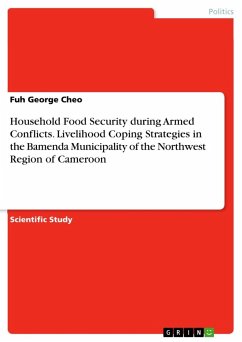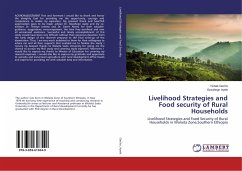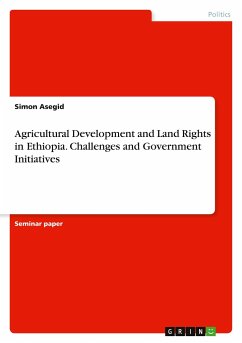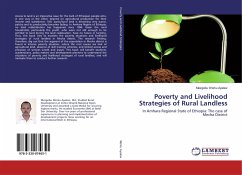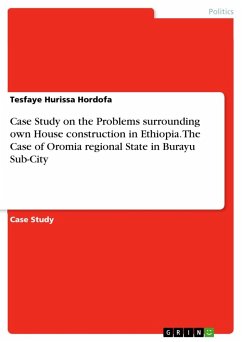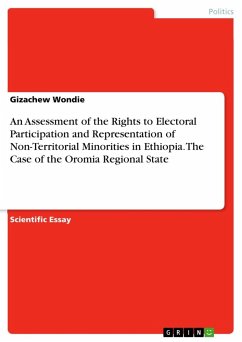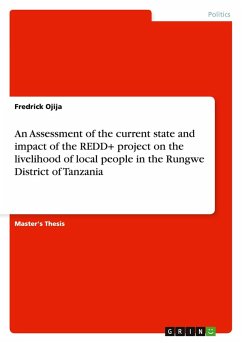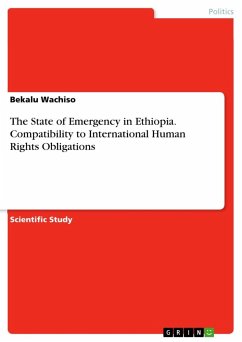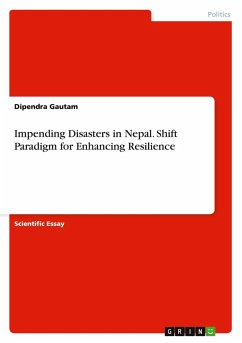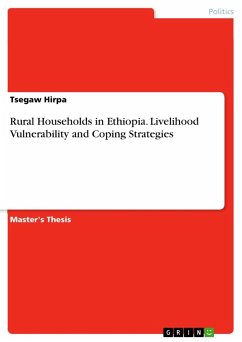
Rural Households in Ethiopia. Livelihood Vulnerability and Coping Strategies

PAYBACK Punkte
0 °P sammeln!
Master's Thesis from the year 2021 in the subject Politics - Topic: Development Politics, grade: 2,0, Hawassa University (Faculty of environment, gender and development studies), course: Rural Development, language: English, abstract: Rural households, particularly smallholder farmers, are frequently predisposed to various vulnerabilites. This paper tries to investigate causes of livelihood vulnerability that rural households face and analyze coping strategies they apply. The analysis is done using data from household survey in Weradejo woreda of Halaba zone. The primary data was collected fro...
Master's Thesis from the year 2021 in the subject Politics - Topic: Development Politics, grade: 2,0, Hawassa University (Faculty of environment, gender and development studies), course: Rural Development, language: English, abstract: Rural households, particularly smallholder farmers, are frequently predisposed to various vulnerabilites. This paper tries to investigate causes of livelihood vulnerability that rural households face and analyze coping strategies they apply. The analysis is done using data from household survey in Weradejo woreda of Halaba zone. The primary data was collected from 264 households, the secondary data was obtained from line office records and the review of related literature. The author then applies descriptive statistics and the econometrics model of multinomial logistic regression to identify the causes of vulnerability. Based on the descriptive analysis, the identified causes of households¿ livelihood vulnerability are drought, farmland fragmentation, crop and livestock diseases, flooding, erratic rainfall, and shortage of agricultural inputs and shortage of capital. The capacity of the households and the community to cope with and recover from shocks remains low, despite the different strategies they adopt. The result of the multinomial logistic regression indicates that sex of the household head, age of household head, family size, and educational level of the household in schooling years, land size owned, pest/diseases, distance to market, and frequency of extension contact are the main determinants influencing the choice of the coping strategies by the respondents.




